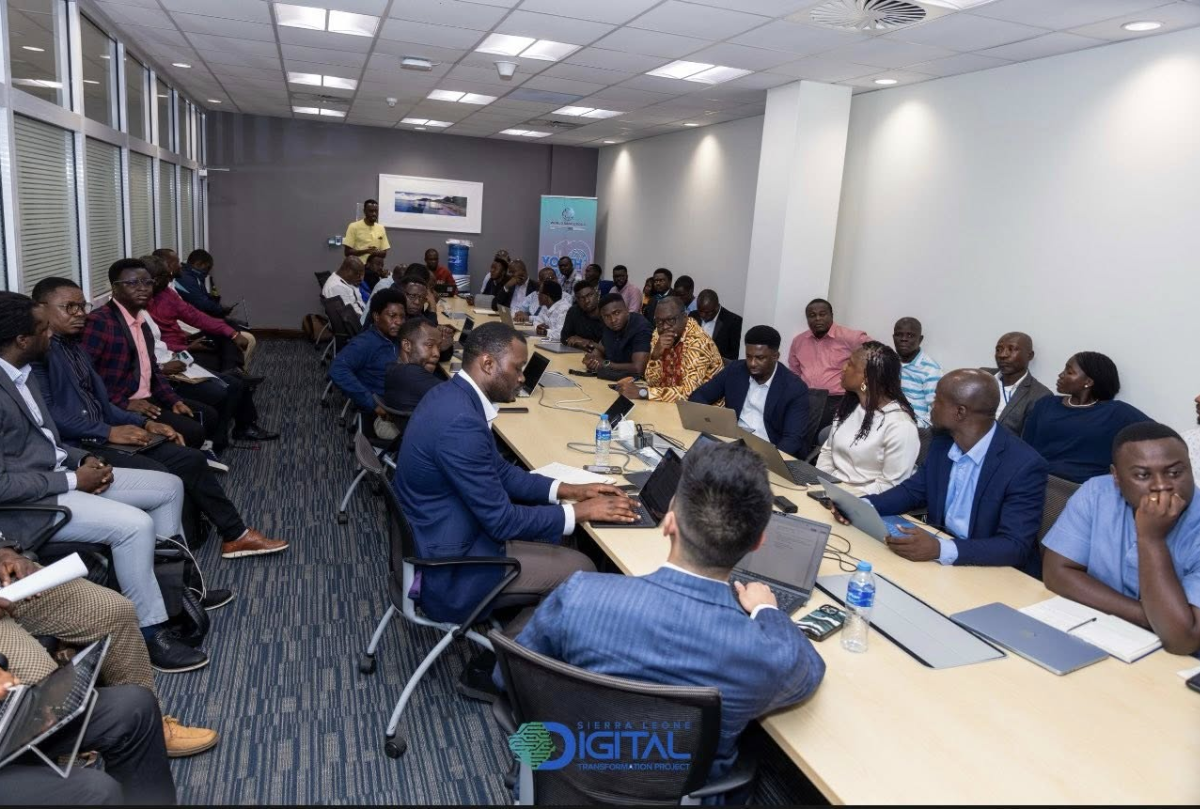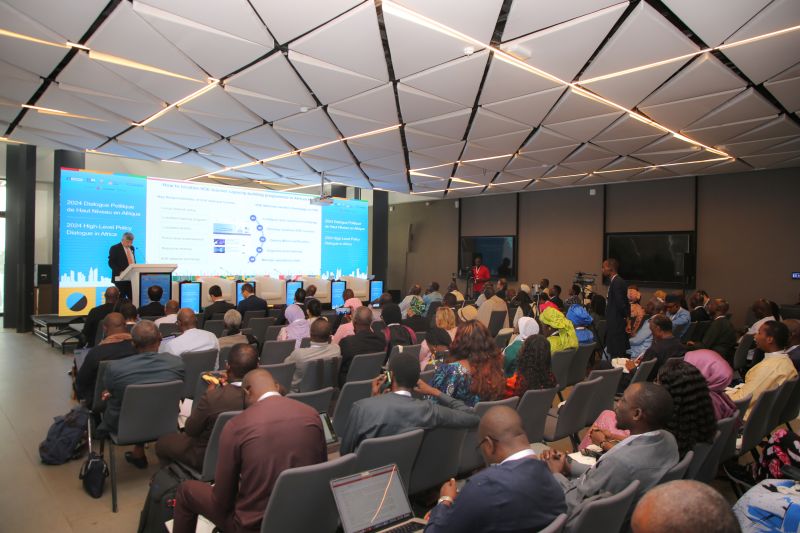West African Nation Launches Groundbreaking Assessment to Build Responsible AI Framework
Freetown, Sierra Leone — In a move that positions it at the forefront of Africa’s digital revolution, Sierra Leone has launched one of the world’s first comprehensive national Artificial Intelligence Readiness Assessments, signaling the country’s commitment to harnessing emerging technologies for sustainable development.
The initiative, announced on October 2, 2025, represents a collaboration between Sierra Leone’s Ministry of Communication, Technology and Innovation and the World Bank through the Sierra Leone Digital Transformation Project. It marks a decisive shift in how developing nations approach AI adoption—prioritizing preparation, ethics, and local needs over rushed implementation.
A Problem-First Approach
“We are not asking how to fit AI into our systems; we are asking which national challenges AI can help us solve today,” declared Minister Salima Monorma Bah, articulating a refreshingly pragmatic vision that distinguishes Sierra Leone’s approach from typical technology-first strategies.
This problem-centered philosophy reflects a mature understanding of technology’s role in development. Rather than adopting AI simply because it’s trendy or available, Sierra Leone is methodically identifying where artificial intelligence can deliver tangible improvements in citizens’ lives—particularly in critical sectors like education, healthcare, and governance.
The Three Pillars Framework
The assessment operates on a comprehensive three-pillar framework designed to provide a complete picture of the nation’s AI readiness:
Compute (Infrastructure): Evaluating the physical and digital infrastructure necessary to support AI systems, from data centers to network connectivity.
Capacity (Skills and Talent): Assessing the human resources available to develop, deploy, and maintain AI solutions, including technical expertise and digital literacy across the population.
Context (Policy and Regulation): Examining the legal, ethical, and regulatory frameworks needed to ensure AI deployment remains responsible, inclusive, and aligned with national values.
This holistic approach goes beyond technical considerations to address the social, ethical, and governance dimensions that often determine whether AI initiatives succeed or fail.
Bridging the Digital Divide
The timing of this assessment is particularly significant given Sierra Leone’s current digital landscape. While the country boasts approximately 8.66 million mobile connections—nearly matching its total population of 8.73 million—only about 1.8 million people, or roughly 21% of the population, actively use the internet.
This stark digital divide underscores a critical insight: AI strategies must be designed around real-world access constraints, not idealized scenarios. Sierra Leone’s assessment specifically examines how to align AI deployment with existing infrastructure limitations while working to expand digital access.
The broader Sierra Leone Digital Transformation Project, backed by $50 million in World Bank funding, is already laying groundwork for this expansion. Since October 2023, the project has connected 50 government ministries, departments, and agencies to reliable internet, dramatically improving communication efficiency and enabling digital public services.
Inclusive Stakeholder Engagement
In Freetown, World Bank representatives joined government officials, academics, civil society organizations, and private sector leaders for initial findings presentations and comprehensive stakeholder consultations. This inclusive approach ensures that diverse perspectives—from tech entrepreneurs to community advocates—shape the final strategy.
The insights gathered examine digital infrastructure availability, local data resources, human expertise distribution, and the existing regulatory environment. These findings will form an evidence-based foundation for policies ensuring AI adoption benefits all Sierra Leoneans, not just urban elites or tech-savvy minorities.
Regional Leadership in Responsible AI
Sierra Leone’s initiative positions it alongside other African pioneers in strategic AI planning. Ghana adopted a National Artificial Intelligence Strategy for 2023–2033, focusing on AI education, data governance, applied research, and public sector applications. Kenya launched its own National AI Strategy for 2025–2030, emphasizing infrastructure development, inclusive AI, and robust governance frameworks.
By conducting a structured readiness assessment before rushing into implementation, Sierra Leone distinguishes itself as a leader in responsible AI planning within West Africa. This measured approach could serve as a model for other developing nations navigating the complexities of AI adoption.
Potential Impact and Future Outlook
If successful, Sierra Leone’s AI strategy could catalyze transformative changes across multiple sectors. In healthcare, AI could improve diagnostic capabilities and optimize resource allocation in underserved areas. In agriculture, which employs the majority of Sierra Leoneans, AI-powered tools could enhance crop management, predict weather patterns, and connect farmers to markets.
Education systems could leverage AI for personalized learning experiences, addressing teacher shortages and improving outcomes in remote communities. Public services could become more efficient and responsive through AI-enhanced governance systems.
Beyond direct applications, a well-executed AI strategy could attract international investment, strengthen local technical capacity, and position Sierra Leone as a regional hub for AI innovation. The assessment’s findings will directly inform the country’s forthcoming National AI Strategy, expected to provide concrete roadmaps for implementation.
Challenges Ahead
Despite the promise, significant challenges remain. Building sufficient computational infrastructure in a country with limited resources requires careful prioritization and creative solutions. Developing local AI talent demands substantial investment in education and training programs. Creating appropriate regulatory frameworks requires balancing innovation encouragement with protection against potential harms.
The success of Sierra Leone’s AI journey will depend on sustained political commitment, continued international partnership, and active engagement from all sectors of society. The assessment itself is just the first step in what will be a long-term transformation.
A Model for Developing Nations
Sierra Leone’s approach offers valuable lessons for other developing countries considering their own AI strategies. By prioritizing readiness assessment over rushed deployment, emphasizing ethical considerations alongside technical capabilities, and grounding strategy in local needs rather than imported solutions, Sierra Leone demonstrates that responsible AI adoption is possible even with resource constraints.
As artificial intelligence increasingly shapes global economic and social landscapes, countries that thoughtfully prepare for this transformation will be better positioned to harness its benefits while mitigating its risks. Sierra Leone’s AI Readiness Assessment represents exactly this kind of forward-thinking leadership—a commitment to building an AI-enabled future that serves all citizens, not just the digitally privileged few.
The world will be watching as Sierra Leone translates assessment insights into action, potentially charting a path that other nations can follow toward more equitable and effective AI adoption.




